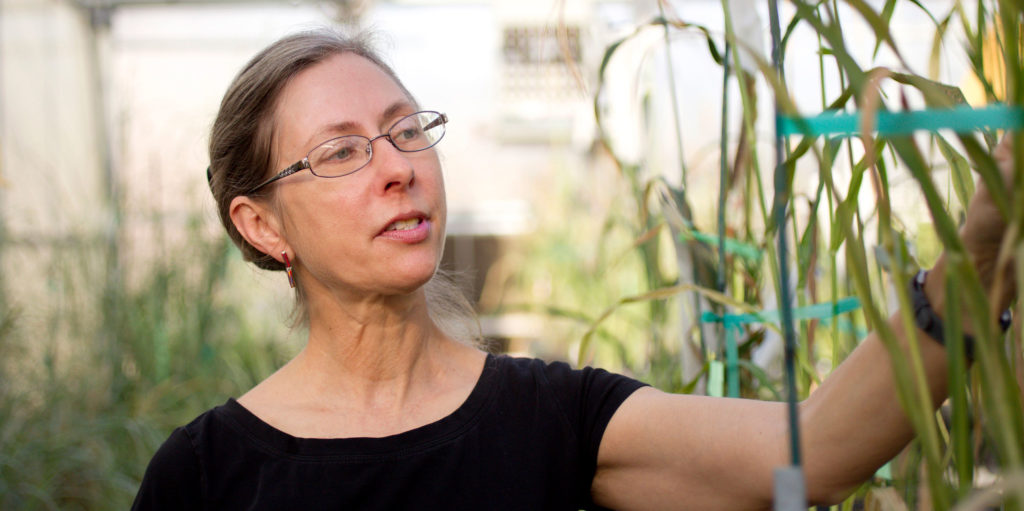Peggy Ozias-Akins, professor in the College of Environmental and Agricultural Sciences and director of UGA’s Institute of Plant Breeding, Genetics and Genomics, works to inspire students to be inquisitive and seek reliable information to guide their thinking.
Where did you earn degrees and what are your current responsibilities at UGA?
I earned my bachelor’s degree in biology and botany from Florida State University and my Ph.D. in botany from the University of Florida. I am currently a professor of horticulture and head of the National Environmentally Sound Production Agriculture Laboratory at UGA’s Tifton campus. I also direct the Institute of Plant Breeding, Genetics and Genomics, an institute in the College of Agricultural and Environmental Sciences that has the participation of faculty and students from the UGA campuses in Athens, Griffin and Tifton.
When did you come to UGA and what brought you here?
I came to UGA in 1986 and was drawn here by the opportunity to conduct research at the interface of fundamental and applied plant science.
What are your favorite courses and why?
I enjoy teaching “Agricultural Biotechnology,” where we cover the basics of molecular genetics and how those tools are used for crop and livestock improvement.
What interests you about your field?
My colleagues and I at the Institute of Plant Breeding, Genetics and Genomics are focused on the science of creating new and improved plant varieties that are higher yielding, more disease resistant, more nutritious or simply of greater ornamental value. Technologies that can be used in new ways to address biological and agricultural science questions related to plant development and reproduction are changing rapidly, which makes this an exciting time in the field.
What are some highlights of your career at UGA?
The research discovery milestones in my projects on apomixis, which is asexual reproduction through seeds, and in peanut biotechnology, genetics and genomics have been very exciting. With apomixis, we are tagging and cloning the genes that are responsible for this naturally occurring process that results in progeny that are genetically identical to the maternal parent. In peanuts, we have helped create varieties that are resistant to fungal contamination and that produce fewer allergens. Another highlight of my career is interacting with students and colleagues who get excited by the science.
How does your research or scholarship inspire your teaching, and vice versa?
In research, answering one question usually raises another. I would hope that the critical thinking skills developed with research experience help to inspire students to be inquisitive and seek reliable information to guide their thinking.
What do you hope students gain from their classroom experience with you?
Passion for science—or at least enough knowledge to know when they need to dig more deeply for information before reaching a conclusion.
Describe your ideal student.
One who is fascinated by and asks questions about the subject matter and who can make connections between what they are learning and how it influences their own lives.
Favorite place to be/thing to do on campus is…
Reviewing data from an experiment with a colleague, postdoc or student.
Beyond the UGA campus, I like to…
Camp, hike, canoe, scuba dive, garden, read—I like to do more things than I have time for.
Community/civic involvement includes….
I am the church pianist at St. Anne’s Episcopal in Tifton.
Favorite book/movie?
I can’t pick a favorite book or movie, but I regularly read Science magazine because it gets me beyond my field of plant science to inform me of exciting new discoveries within and outside of biology.
Proudest moment at UGA?
Seeing students accomplish their goals and graduate.
